Remembrance in Future Things Past: Recall of (and in) some of the best scifi of the 1980’s
With profuse apologies to Marcel Proust.
After spending December devouring Best of the Best, (see this column in RSF#8), I tried to tackle another of Gardner Dozois’s tomes which I received as a holiday gift, his Third Annual The Year’s Best Science Fiction, collecting 24 stories from 1985. I was overcome with an almost immediate sense of déjà vu. At first I thought it was simply due to the fact that several of the stories from 1985 had also been chosen by Dozois to appear in the 20-year anthology I had just read, or that one of them (James Patrick Kelley’s “Solstice”) was reprinted in the cyberpunk anthology Mirrorshades which I had read the month before that (see this column in RSF#7). But that didn’t quite explain the feeling I had, because I had it before I even got to the stories I had read recently.
I finally realized I had read many of these stories before, long ago, but it took me a while to realize when and where. They had, for some reason, been blocked from my memory. Allow me to borrow a little from Marcel Proust (with apologies for slight alterations) to try to explain,
One day in winter, my editor, seeing that I was cold, offered me a collection of short stories, a thing I did not ordinarily read. I declined at first, and then, for no particular reason, changed my mind. No sooner had the words touched my eyes than a shudder ran through me and I stopped, intent upon the extraordinary thing that was happening to me. An exquisite pleasure had invaded my senses, something isolated, detached, with no suggestion of its origin. Whence could it have come to me, this all-powerful joy? It was plain that the truth I was seeking lay not in the book but in myself. The book had called it into being. I put down the book and examined my own mind. I ask my mind to make one further effort, to bring back once more the fleeting sensation. And suddenly the memory reveals itself. The stories are those of my youth, when on weekday afternoons my favorite magazines would arrive in the curbside mailbox. And as soon as I had recognized the style of these stories from just a few well-turned Gibsonian phrases, immediately the old slick Omnis with chrome robotic faces on the cover, the thick digest-sized Fantasy & Science Fictions with their rough and pulpy feel and newsprint smell, and (later) the wide white-borders of (now-defunct) Aboriginal, all rose up like a stage set to attach themselves, stacked neatly next to my (then fairly new) TRS-80 CoCo (which my father had allowed to sit in a place of honor on his big oak desk). And as in the game wherein the Japanese amuse themselves by filling a porcelain bowl with water and steeping in it little pieces of paper which until then are without character or form, but, the moment they become wet, stretch and twist and take on colour and distinctive shape, become flowers or houses or people, solid and recognizable, so in that moment all the stories from those long-lost pages of past periodicals and all those places I had read them, taking shape and solidity, sprang back into being, from that quaint and curious volume of forgotten lore (adapted from Proust, 37-40).
Of course, Proust, in his passage which has since provoked much philosophical and psychological discussion about memory and phenomenal experience, was actually writing about a cup of tea and some petites madeleines, rather than scifi short stories, but they amount to the same thing. All of a sudden I realized where I had read these stories before. It was in their original publications, in the years when I was first discovering science fiction and I had subscribed to several periodicals to support my new habit. And, like Proust’s tea and cake, recall of those stories brought with them other associated memories, including the look and feel of the magazines, a sense of my surroundings when I first read them, and even that same feeling of wonder I felt when first developing a love for the genre.
Michael Swanwick & William Gibson’s “Dogfight” was the first story in the collection which had this strange and wonderful effect. As I got further into the anthology and I realized what was happening to me, I checked the acknowledgements in the front of Dozois’s book, and confirmed what I had suspected – the stories which had invoked that sense of déjà vu, the stories for which I could guess the ending before I reached it, were the very ones which had first been published in Omni and Fantasy & Science Fiction, magazines to which I subscribed. I couldn’t remember the actual stories, but I remembered having read them.
Memory indeed is a strange and wonderful thing. And, as I discovered as I continued through the Third Annual, the strangeness and wonder of memory is something which has captivated science fiction writers as well. Over a quarter of the stories from the 1985 anthology deal with memory in different ways. One of the great things about science fiction is that it can take mere metaphors literally, make them reality. And a number of stories do just that as a way of understanding memory and its place in human experience.
In John Crowley’s “Snow,” for instance (which made the cut for Best of the Best), the narrator is able to review recordings of a lost loved one, through a memorial company which (for those who can afford it) archives continual audiovisual footage of one’s everyday life to be accessed later. But these technological memories are in fact metaphors for actual memory, which is so immense that it is impossible to search exhaustively for the one single memory you really want, is subject only to random access (in every sense of “random”), and, like everything else, is ultimately ephemeral. The narrator explains (in a nod to Citizen Kane, another classic reference to the importance of memories), “I think there are two different kinds of memory, and only one kind gets worse as I get older: the kind where by an effort of will you can reconstruct your first car or your serial number or the name and figure of your high-school physics teacher… The other kind doesn’t worsen, if anything it grows more intense: the sleepwalking kind, the kind you stumble into as into rooms with secret doors, and suddenly find yourself sitting not on your front porch, but in a classroom, you can’t at first think where or when, and a bearded smiling man is turning in his hand a glass paperweight inside which a little cottage stands in a swirl of snow” (134).
In Karen Joy Fowler’s “The Lake Was Full of Artificial Things,” a woman also attempts to come to terms with the loss of a loved one. She does this not by revisiting old memories as in “Snow,” but by having artificial memory-implantation therapy treatments. The doctor points out, “Therapy is not really concerned with truth, which is almost always a matter of perspective. Therapy is concerned with adjustment – adjustment to an unchangeable situation or to a changing truth” (163). But her implanted memories begin to take on a life of their own. The metaphorical suggestion is that we ourselves continually rewrite our own experiences to suit our own perspective.
Artificial persons are given very real-seeming memories in Robert Silverberg’s novella “Sailing to Byzantium.” Explains one such construct, “We are very cleverly done, my friend. We are ingenious constructs, marvelously stuffed with the thoughts and attitudes and events of our own times… We move about by our own will. We think, we talk, we even, so it seems, fall in love… We are mere illusions, done so well that we deceive even ourselves.” This takes place on a far-future Earth which itself becomes a metaphor for memory, as terraforming robots continually reconstruct the past for the entertainment of its immortal inhabitants, one historic city at a time. But even with immortality and godlike engineering, there are limits to how much of the past may be held onto. Only five cities may exist at a time. To sail to Byzantium, one must first lose Alexandria and all the richness of its library, forever.
I am reminded here (no pun intended) of the film Blade Runner, in which memory is also important. Aside from longer life, memories are largely what the escaped replicants, desire. They collect photographs to give them reference points for their experience, of families who aren’t really theirs. The replicants’ creator, Tyrell, says to Decker: “They are emotionally inexperienced, with only a few years in which to store up the experiences which you and I take for granted. If we gift them with a past, we create a cushion or a pillow for their emotions, and consequently, we can control them better.” Decker (Harrison Ford) replies, “Memories, you’re talking about memories!” And memories are what allow a simple question-and-answer test to distinguish a replicant from a human. Rachael’s artificially implanted memories make her so different that, like some of the characters in Silverberg’s story, she does not even realize she is a replicant, and Decker’s test takes many more questions than normal to distinguish her true nature.
Bruce Sterling’s prophetic “Dinner in Audoghast” (which also made the Best of the Best list, for good reason) reminds the inhabitants of that bustling north African metropolis (and also us) that they too will be forgotten in time. “You, and all you love, will leave no trace in this world, except a few lines in the writing of strangers” (409).Yet all shall be forgot. The struggle to be remembered is sometimes more important than the struggle for mere survival.
In S.C. Sykes’s “Rocakabye Baby,” a wheelchair-bound veteran has the option to undergo an experimental regenerative treatment which can give him fully functional legs and arms once again. But there’s a catch. It regenerates his central nervous system too, which will erase his memories. He will become a true tabula rasa. Previous experimental subjects have committed suicide shortly after treatment due to the dearth of experience. Being a blank slate drives them crazy. But there are possible fixes – like tape recording yourself describing your most important memories, so you can play them back after the treatment and relearn who you really were. But what do you record? “Suddenly a whole flood of memories tumbled across his mind – the summer of the worst dust storm he could remember, when the sky turned solid black in the middle of the day… going pecan thrashing with his dad, whacking the tree branches with long cane poles until the nuts fell like green-brown hail all around him… the blood brother ceremony at scout camp with Robbie Turner – he still had the scar… the drag race out by the lake when Tony Dawson almost flipped his dad’s car into the spillway… too much… too many things… Everything was important. Absolutely all of it” (550-51). How much memory is enough to make you, you?
By far the most powerful story about memory in this anthology is Kim Stanley Robinson’s “Green Mars,” a novella-length precursor to his later Mars trilogy (reprinted in his post-trilogy anthology The Martians), which follows a group of climbers trekking up the solar system’s largest mountain, Olympus Mons. Mars has been terraformed into a lush and verdant world filled with engineered plant and animal life. Medical technology has advanced to the point where the human Martians can live upwards of three hundred years (with no theoretical upper limit having yet been reached). But there’s a catch here, too. (There’s always a catch.) We knew even in the twentieth century that as one gets old one loses early childhood memories. But as lifespans increase, we discover that when one gets really old, say three hundred years, one loses not just a few years, but decades, or even a century’s worth of memories in order to make room for the new. Humans of the future routinely have to cope with lost memories, and with questions of identity. One character keeps journals from earlier in her life to help remind her of what she has forgotten, but now she knows it merely as if it were something she read in a textbook written by someone else; she doesn’t really remember herself.
But Roger Clayborne is different. He remembers everything, and he doesn’t want to. He has seen Mars change from the Red Planet he loved when he first explored it to a Green world he no longer recognizes. He remembers all of his failures, both political and romantic. He has insomnia at night because he can’t stop remembering.
It’s in the contrast between the normally forgetful Martians and Roger the “freak” remember-all that wonderful philosophical questions about the role of memory arise. Robinson’s characters cite Heidegger on the difference between “planet” and “world” (which distinction should be important to scifi writers), and also appeal to another great existential philosopher: “[T]here are two ways of looking at the past. You can think of it as something dead and fixed forever; it’s part of you, but you can’t change it, and you can’t change what it means. In that case your past limits or even controls what you can be. But Sartre doesn’t agree with that way of looking at it. He says that the past is constantly altered by what we do in the present moment.… every new act that we commit can revalue the entire thing!” (574).
I am reminded (again no pun intended) of what another Martian on another kind of Mars said. In Total Recall (another 80’s film which, like Blade Runner, is based on a Philip K. Dick story), the mutant rebel Kuato explains to Quaid (Arnold Schwarzenegger), “A man is defined by his actions, not his memory.” An existentialist if ever there was one.
What is it about memory that so intrigues us humans, and that so fascinates science fiction authors?
I used to know. I even wrote a poem about it once, long ago. But I can’t remember it.
Works Cited:
Dozois, Gardner. The Year’s Best Science Fiction: Third Annual Collection. New York, Bluejay, 1986. All stories mentioned were originally published in 1985. Page numbers are from the anthology.
Proust, Marcel. Swann’s Way, vol. 1 of Remembrance of Things Past. New York: Dover, 2002. English translation by C.K. Scott Montcrieff (1922) from the French original (1913). The referenced passage has been altered by the columnist.
Henry Cribbs somehow managed to sneak his science-fiction poem about Schrödinger’s cat into the literary art journal Lake Effect, and has also published book reviews for Philosophical Psychology, Chicago Literary Review, and Black Warrior Review. He taught philosophy and creative writing at the University of South Carolina for several years, and now forces his high school English students to read Ray Bradbury. He currently serves on the editorial board for Nimrod International Journal of Prose and Poetry.












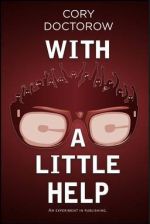
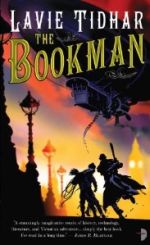
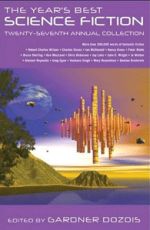


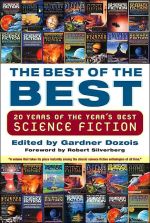
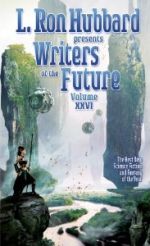

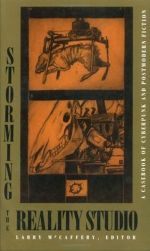



2 comments
“One of the great things about science fiction is that it can take mere metaphors literally, make them reality.”
I’ve always thought that was one of the really bad things about religion.
Very fine essay. Wonderful nostalgia.
[…] considered the decades covered in Gardner Dozois ‘Best of the Best’ Anthology, focused on the theme of memory in the 1985 Dozois anthology, and now in this month’s essay he examines an anthology of the […]